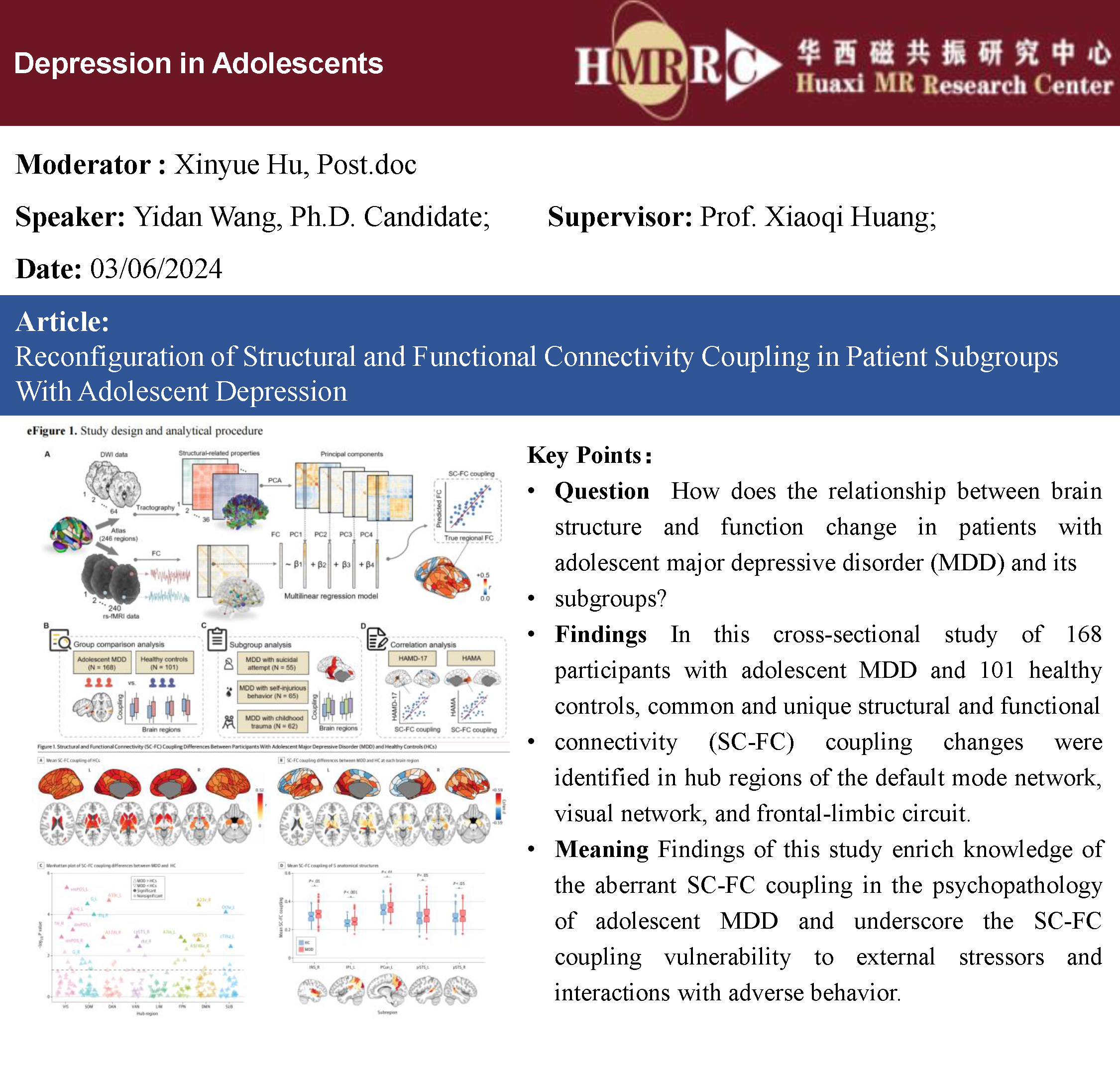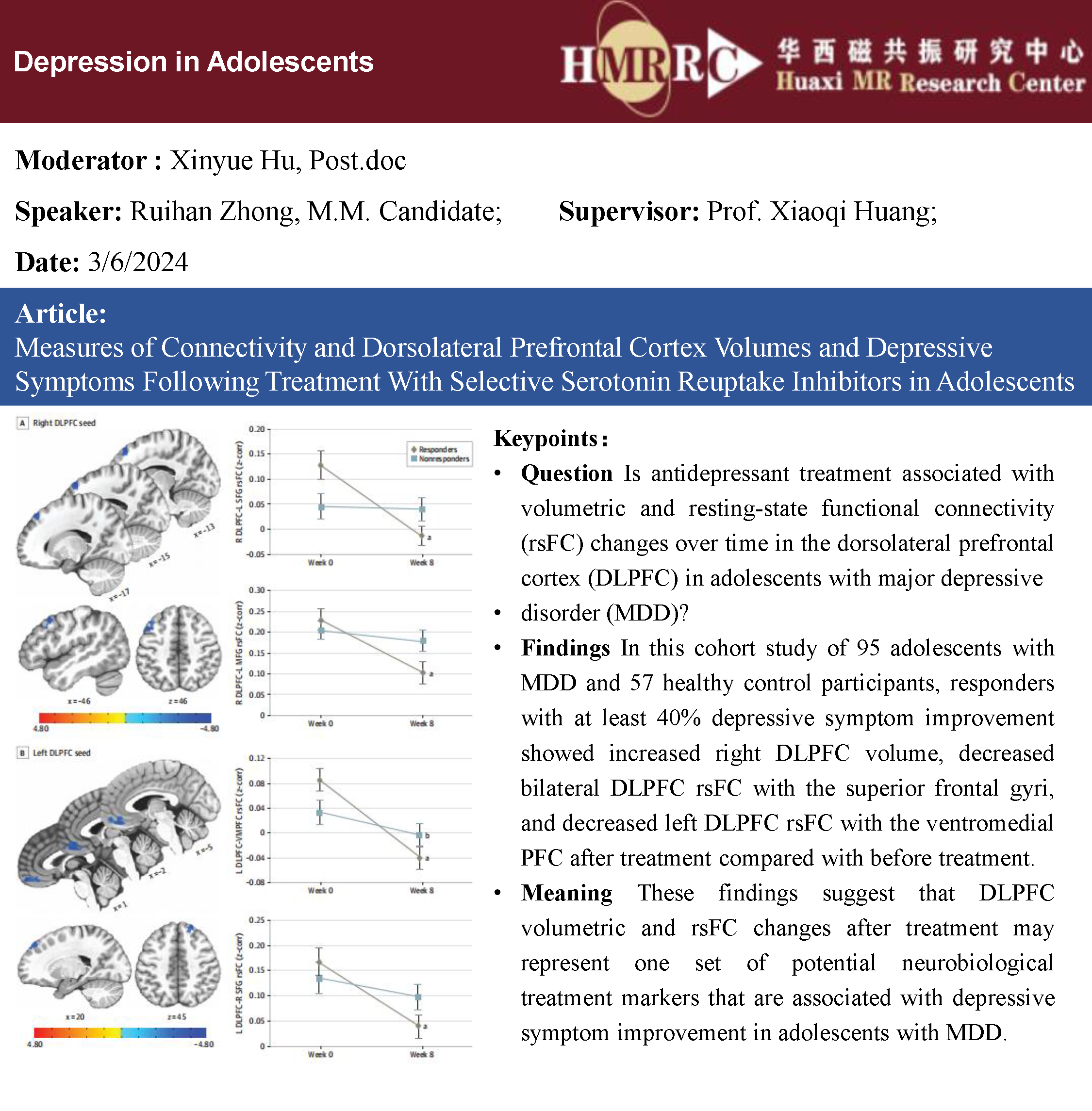Topic: Depression in Adolescents.
Speaker 1 : Yidan Wang, Ph.D. Candidate
Speaker 2 : Ruihan Zhong, M.M. Candidate
Date: 03/06/2024, 14:00
Location: The lab of HMRRC (10011, the 8th Teaching Building)
Speaker 1: Yidan Wang, Ph.D. Candidate
Keypoints:
Question: How does the relationship between brain structure and function change in patients with adolescent major depressive disorder (MDD) and its subgroups?
Findings: In this cross-sectional study of 168 participants with adolescent MDD and 101 healthy controls, common and unique structural and functional connectivity (SC-FC) coupling changes were identified in hub regions of the default mode network, visual network, and frontal-limbic circuit.
Meaning: Findings of this study enrich knowledge of the aberrant SC-FC coupling in the psychopathology of adolescent MDD and underscore the SC-FC coupling vulnerability to external stressors and interactions with adverse behavior.

Speaker 2 : Ruihan Zhong, M.M. Candidate
Title: Measures of Connectivity and Dorsolateral Prefrontal Cortex Volumes and Depressive Symptoms Following Treatment With Selective Serotonin Reuptake Inhibitors in Adolescents.
Keypoints:
Question: Is antidepressant treatment associated with volumetric and resting-state functional connectivity (rsFC) changes over time in the dorsolateral prefrontal cortex (DLPFC) in adolescents with major depressive disorder (MDD)?
Findings: In this cohort study of 95 adolescents with MDD and 57 healthy control participants, responders with at least 40% depressive symptom improvement showed increased right DLPFC volume, decreased bilateral DLPFC rsFC with the superior frontal gyri, and decreased left DLPFC rsFC with the ventromedial PFC after treatment compared with before treatment.
Meaning: These findings suggest that DLPFC volumetric and rsFC changes after treatment may represent one set of potential neurobiological treatment markers that are associated with depressive symptom improvement in adolescents with MDD.
